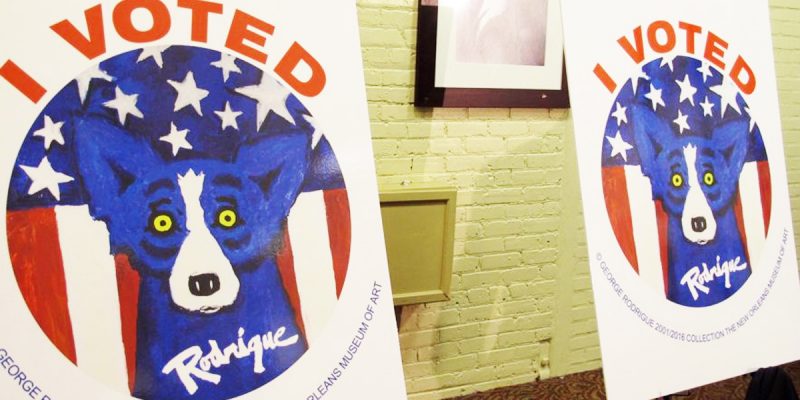Editor’s Note: A guest post by John Diez, Director of Political Action Committees for the Louisiana Association of Business and Industry.
Most political observers agree that the last decade of Louisiana politics has been anything but dull due to a series of trends and changes, all of which can be expected to play a role in the character and perhaps outcome of the state’s 2019 elections:
- Implementation of term limits by the voters which has led to a 50% turnover in the Louisiana House of Representative in 2007 and will create a gaping 36 vacancies in the House of Representatives and 16 vacancies in the State Senate that will need to be filled in the 2019 election cycle.
- The decline of “John Breaux” Democrats. In 2000, 60% of voters statewide were registered Democrats. Since then, Democratic Party registration has declined about a point each year and currently represents 44% of Louisiana voters. The driving force behind this decline are white Democrats, who made up 35% (920,796) of the electorate in 2000 and only 18% (546,255) today.
- The election of the first Republican majority in the State Legislature since Reconstruction in the late 1800s.
- A new era of big Political Actions Committees (PACs) bringing in big dollars. These new third–party PACs — from Gumbo PAC to the Louisiana Committee for a Republican Majority to George Soros’s PAC, Louisiana Safety & Justice – brought millions in independent campaign expenditures. Campaign finance reports show that combined, the 10 biggest third-party PACs in Louisiana raised more than $18 million since 2007.
- The defeat of both parties’ heavyweights in Washington: Mary Landrieu and David Vitter.
- Three straight years of vitriol and bile campaigns: 2014 U.S. Senate (Landrieu vs. Cassidy), 2015 Governor (Vitter vs. the field) and 2016 U.S. Senate (too many candidates to list).
- The election of a Democrat as Governor when voters bucked the trend amid a clear pro-Republican political movement – a classic Louisiana move that again shows we are unique.
Considering the past decade of Louisiana politics, dubbed by many as the era of “Washington D.C. Bayou-Style Politics,” many are wondering if 2019 will be a cooling-off year, perhaps even desiring a return to relative normalcy.
Well, I hate to be the bearer of bad news, but the 2019 elections, and particularly those for the state legislative seats, have national ramifications and will draw the attention and financial resources from both national parties as well as numerous other partisan political organizations from outside the state. This will set the stage for even more contentious battles than we have seen in the past decade in the Bayou State.
Why? The state legislators who will take office before the 2020 Census could ultimately decide control of the U.S. Congress because they will be charged with the dubious but consequential task of re-drawing Congressional districts.
What makes Louisiana particularly interesting to both national parties? Currently, Democrats are eyeing the 24 seats they need to gain control of Congress, and the Louisiana Congressional delegation is a prime target to flip if Congressional boundaries are shifted. With 53 votes in the Louisiana State House of Representatives and 20 votes in the Louisiana State Senate, the Louisiana delegation has the potential to shift from a 5R/1D to a 4R/2D or even a 3R/3D.
Advertisement
With the real possibility of a power shift, the national Democrats are taking redistricting seriously. How about this for the opening sentence in a recent article published by NBC News: “When Eric Holder and Barack Obama go on vacation together, they talk about redistricting.” A headline in a recent Chicago Tribune article also brought to light the impending shift, reading, “Holder warns that Democrats’ future rests on state elections, ‘rigged’ maps.” These articles are simply setting the stage for the power struggle to come. According to David Simas, former White House political director, the Obama/Holder organization will be most involved at the state legislative level, with an eye on redistricting possibilities after 2020. Furthermore, Raj Goyle, an activist with the Democracy Alliance, a Soros-funded organization, stated that “Progressive donors and organizations need to immediately correct the lack of investment in state and local strategies.”
Considering that George Soros invested over $1 million in the 2015 Caddo Parish District Attorney election, it is safe to say that national interests are already invested in the outcomes of state and local races in Louisiana.
Rest assured that Republican operatives are making strategic plans and equally large sums of financial investments in the upcoming state legislative battles for the 2019 elections. Both parties recognize the ramifications of partisan control of legislative bodies going into the 2020 redistricting cycle.
For those of you hoping for a return to normalcy, the 2019 elections for the Louisiana State Legislature are slated to be anything but normal and far from local.
Advertisement
Advertisement

